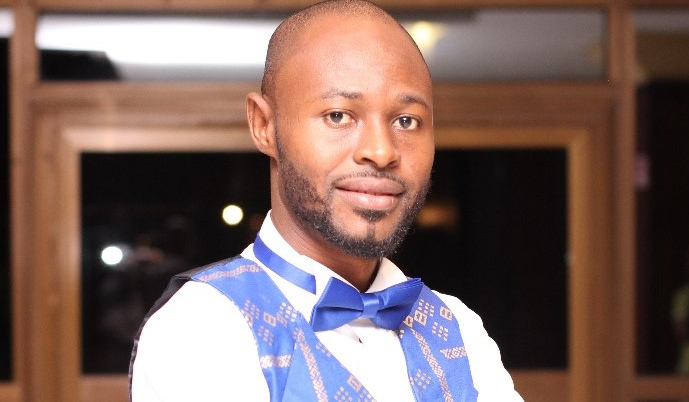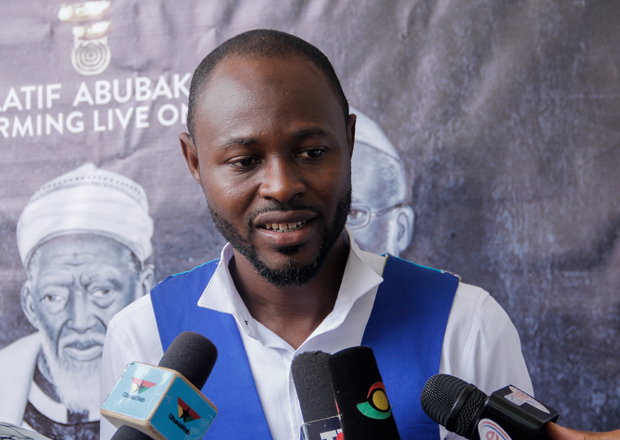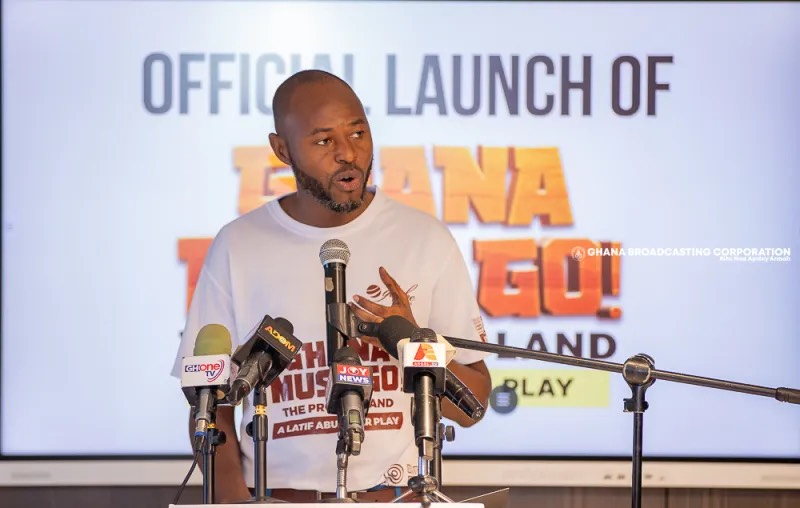Ghanaian playwright and theatre producer Latif Abubakar has shared his candid views on the current state of theatre in Ghana, describing it as promising but still significantly underdeveloped.
Speaking during an interview on Showbiz Today, a popular entertainment programme on Empire 102.3 FM, the CEO of Globe Productions rated Ghana’s theatre industry at just 35% in terms of progress and impact.

Abubakar acknowledged that the theatre scene has made notable strides in recent years, with increasing audience engagement, higher production values, and more plays being staged. However, he stressed that the industry still lacks the robust infrastructure, consistent funding, and institutional support required to reach its full potential.
“Theatre in Ghana is doing well and it’s exciting currently, but on a scale of 100%, I would give it 35%,” Abubakar stated.
As one of Ghana’s leading theatrical voices, Abubakar has spearheaded multiple acclaimed productions under his company Globe Productions, including socially impactful plays such as Judas and Delilah, The Second Coming of Nkrumah, and The Black Image. His productions often blend comedy and drama while tackling significant societal issues, drawing in audiences from diverse backgrounds.
During the interview, he elaborated on the challenges that continue to limit the growth of theatre in Ghana. These include limited access to funding, inadequate performance spaces, and a general undervaluing of theatre as a viable form of both entertainment and education.
He also pointed out the role of education in boosting theatre, advocating for curriculum reform and more institutional engagement to foster the next generation of playwrights, actors, and producers.
“We need more investment, not just financially but in policy and public support. Theatre has the potential to inform, inspire, and transform society,” he emphasized.

Abubakar called on stakeholders in the entertainment industry, government agencies, corporate Ghana, and the public to rally behind local theatre by attending shows, sponsoring events, and investing in the arts.
Despite his modest 35% rating, Abubakar remains optimistic about the future of Ghanaian theatre. He believes that with increased collaboration, strategic partnerships, and deliberate national effort, theatre can play a pivotal role in national development and cultural identity.

As theatre continues to evolve in Ghana, Latif Abubakar’s insight serves as a crucial reminder that while progress is being made, sustained commitment is required to elevate the industry to international standards. With creative minds like his at the helm, the stage is set for a brighter future for Ghanaian performing arts.



